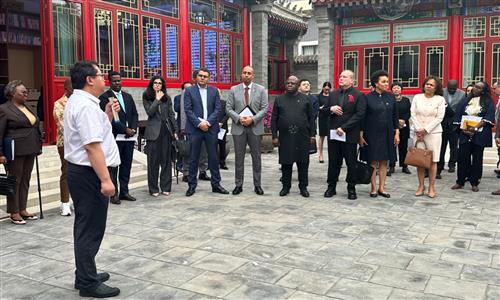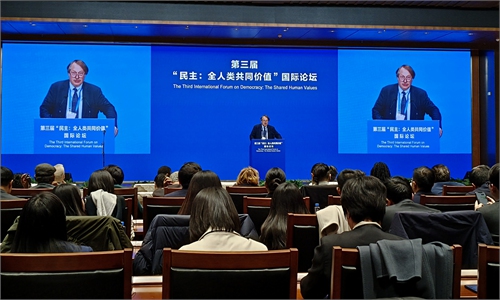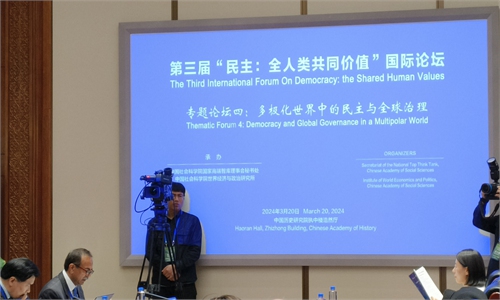Foreign diplomats commend China's grassroots lawmaking process, reject Western model as the only form of democracy
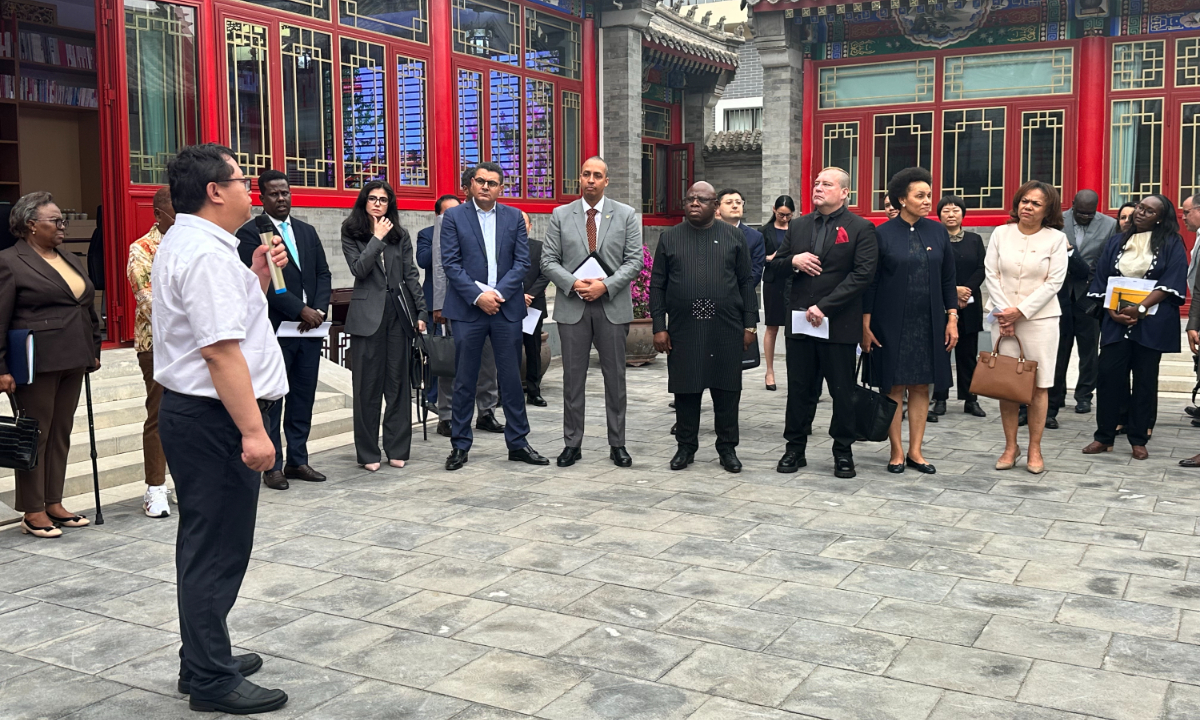
Dozens of foreign diplomats are invited to a local legislative liaison station in Beijing's Chaoyang district on April 26, 2024. Photo:Cui Fandi/GT
Dozens of foreign diplomats commended the expertise and efficiency of China's grassroots lawmaking process, while rejecting the notion that the Western model is the only form of democracy, as they visited a local legislative liaison station in Beijing on Friday.
On Friday afternoon, ambassadors and diplomats from 36 countries visited a local legislative liaison station in Beijing's Chaoyang District, where they held meetings with grassroots lawmakers and observed a fundamental step of China's whole-process people's democracy.
The Nanmofang Township Legislative Liaison Station visited by the foreign envoys is one of the 43 legislative liaison stations in Chaoyang District, and is one of the most grassroots institutions in the Chinese legislative system. Established by the Standing Committee of the People's Congress of Chaoyang District, it is where grassroots deputies discuss legislative drafts and collect suggestions from the public.
During the visit, the foreign diplomats audited a consultation meeting on the Law on Deputies to the National People's Congress and Local People's Congresses, which was attended by grassroots deputies from all walks of life.
After the consultation meeting, they took part in a symposium with the deputies and officials from the Standing Committee of the People's Congress of Chaoyang District, sharing their views, questions and observations of China's grassroots legislative process.
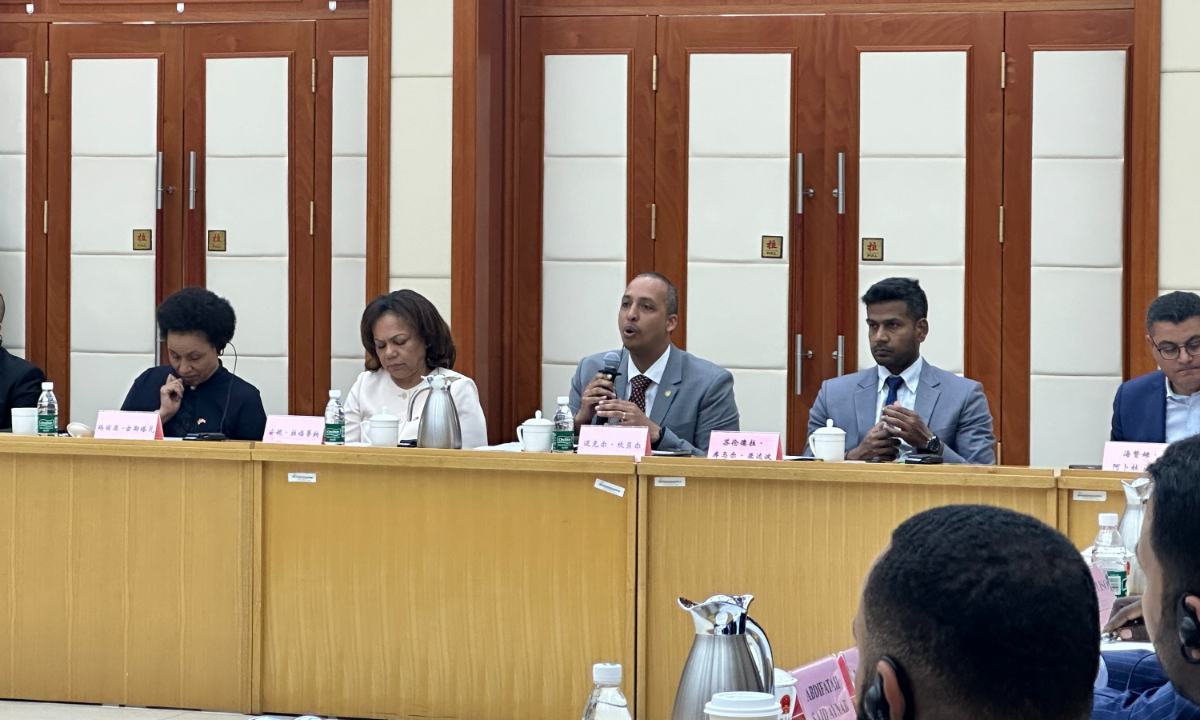
Michael Campbell, Nicaragua's Ambassador to China, speaks at the meeting. Photo:Cui Fandi/GT
The ambassadors interviewed by the Global Times said that it is their first time to observe China's whole-process people's democracy at the grassroots level, and they are impressed by the level of expertise and efficiency, and diversity in participation.
"This is the first time that I've had the privilege and the opportunity to observe a lower level of the People's Congress," Michael Campbell, Nicaragua's Ambassador to China, told the Global Times after the event. "We've had the chance to see that the whole-process people's democracy model has been improving, which is very important."
Campbell said he was impressed by the diversity in the grassroots legislation in terms of the backgrounds of the participants. "You have professors, you have doctors, you have lawyers … Everybody was debating on the same bill that will eventually go to the upper level," he said. "When the bill reaches the national level, it already has the suggestions of all walks of life. So when it's finally approved, everybody is willing to implement it."
Campbell, who has also been invited to the national two sessions - the annual legislative and political consultative sessions - in March, believes that China's whole-process people's democracy will continue to strengthen and improve, as everybody has their voice to make China better.
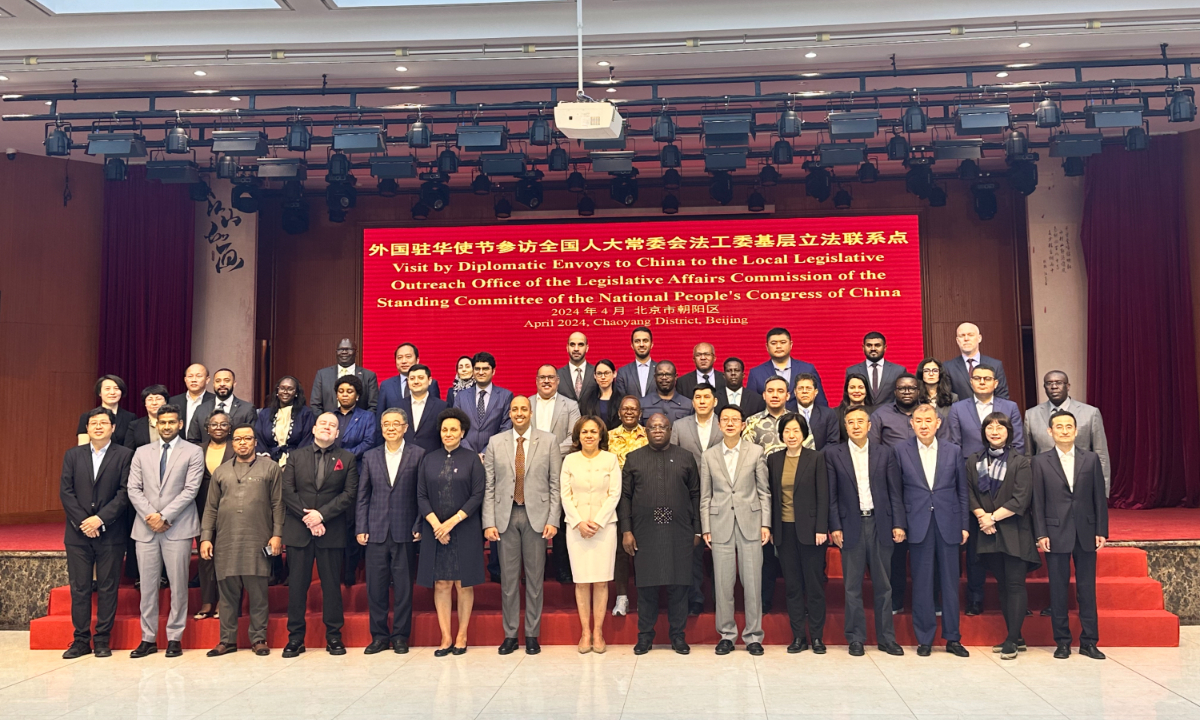
The diplomats take a group photo with local grassroots officials. Photo:Cui Fandi/GT
China has more than 2.77 million lawmakers at five levels of legislative bodies. Among them, there are less than 3,000 national deputies, while county and township-level deputies account for about 95 percent of the total number of lawmakers. The vast majority of these grassroots deputies, or 94.5 percent of the total, are directly elected.
Abu Bakarr Karim, the Sierra Leone Ambassador to China, and Anne Lafortune, Seychelles Ambassador to China, both described what they witnessed as "impressive."
"You can actually see the level of consultation that takes place at the grassroots level," Karim told the Global Times. "I was impressed by the level of expertise."
Karim noted that he would like to communicate with his local parliament back in his country about his observations and discuss whether they can learn more from it.
Lafortune said she was always aware of China's whole-process democracy but has never seen it up close as she did during the visit.
"I was impressed by the different ways that the grassroots people are able to voice their opinion," she said. "It has shown that China is really committed to making sure its people are actually heard."
Lafortune noted that there are many models of effective democracy, and each country can see their own way to approach it. "China is moving forward. This version apparently fits China," she said.
Campbell, the Nicaraguan Ambassador, noted that it is obvious that the "Western model of democracy" is not the only definition of democracy.
"It is one of the greatest mistakes that the West is making right now - instead of investing in their model, they are busy promoting false narratives related to the democracy of other countries," he told the Global Times. "Each country has to decide what is most appropriate for them."
One of the most important things about China is that it respects the democracy model of other countries, he said, while Western democracy is promoting interventionism, warmongering and false narratives.
